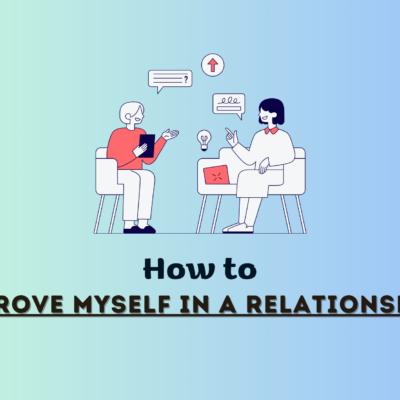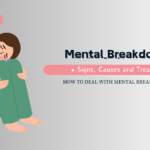How to Improve Myself in a Relationship: Relationships act as a deep mirror reflecting our strengths, weaknesses, and growth areas. While we usually concentrate on external factors within relationships, such as communication and compatibility it is equally important to focus on personal self-improvement.
Developing personal growth not only increases one’s own life but also improves the quality of relationships. In this article, we will talk about some practical strategies to improve oneself within the relationship.
Also Read:
- Why Is It so Hard to Get over My Ex?
- Ways of Showing Love to Others.
- What Are The Signs of Spiritual Twin Flame?
- Long Term Relationship Break Up and Get Back Together.
Understanding Yourself:
Self-awareness is the basis of personal growth. Start by reflecting on your values, beliefs, and aspirations. Understanding your emotions, triggers, and patterns of behavior permits greater self-regulation and compassion toward your partner. Engage in introspective practices such as journaling, meditation, or therapy to heighten your self-awareness.
How to Improve Myself in a Relationship?
Communication Skills
Effective communication is important for promoting closeness and fixing conflicts within relationships. Listen to your partner carefully give your full attention and validate their feelings. Express yourself honestly, while also being open-minded to feedback. Avoid being defensive or accusing language and desire for mutual understanding and settlement.
Empathy and Compassion
Empathy is the capability to understand and share the feelings of another. Develop empathy by actively seeking to understand your partner’s viewpoint, even when it varies from your own. Practice empathy not only during conflict but also in everyday interactions. Show compassion towards your partner’s efforts and celebrate their successes with genuine joy.
Emotional Intelligence
Emotional intelligence contains the capability to identify, understand, and handle your own emotions, as well as those of others. Develop emotional intelligence by adjusting to your feelings and learning healthy ways to express them. Practice emotional regulation strategies such as deep breathing or mindfulness to handle stress and control emotional outbreaks. Additionally, be attuned to your partner’s emotional signals and react with sensitivity and empathy.
Self-Care
Prioritizing self-care is important for keeping balance and well-being within a relationship. Take time to nurture your physical, emotional, and mental health through activities that recharge you. This could include exercise, hobbies, spending time with loved ones, or simply satisfying in moments of isolation. Remember that taking care of yourself allows you to show up as your best self in your relationship.
Setting Boundaries
Healthy boundaries are important for supporting freedom and maintaining the integrity of a relationship. Communicate your needs, preferences, and limits to your partner, and appreciate theirs in return. Setting boundaries helps prevent irritation and promotes mutual respect and understanding. Be strong in upholding your boundaries, even if it means saying no or supporting yourself.
Continuous Learning and Growth
Consider relationships as a journey of growth and discovery, rather than a goal. Stay open to learning from your experiences and committed to personal development. Seek opportunities for self-improvement through reading, attending workshops, or seeking advice from mentors or counselors. Welcome challenges as opportunities for growth and see setbacks as learning experiences instead of failures.
Practice Gratitude
Develop an attitude of gratitude within your relationship by expressing appreciation for your partner and the positive parts of your connection. Regularly recognize and thank your partner for their contributions, big and small. Gratitude promotes a sense of mutual appreciation and strengthens the emotional bond between partners.
Forgiveness and Letting Go
Forgiveness is a strong tool for healing and reconciliation within relationships. Practice forgiveness by letting go of irritation and releasing the desire for revenge or punishment. Understand that forgiveness is a process that takes time and effort, but it is important for moving forward and rebuilding trust. Remember that forgiving your partner is also good for your emotional health.
Maintaining Independence
While relationships need collaboration and compromise, it’s important to maintain a sense of identity and independence. Encourage your interests, friendships, and goals outside of the relationship. Avoid becoming extremely dependent on your partner for validation or fulfillment. Developing independence promotes a healthy sense of self-esteem and increases the dynamic of the relationship.
At The End
Improving oneself within the context of a relationship is a continuous journey that needs self-awareness, effort, and dedication. By developing essential skills which are mentioned above you can improve the quality of your relationships and experience greater fulfillment and intimacy.
Remember that personal growth not only benefits yourself but also increases your connection with your partner, leading to a more pleasant and rewarding relationship journey.








